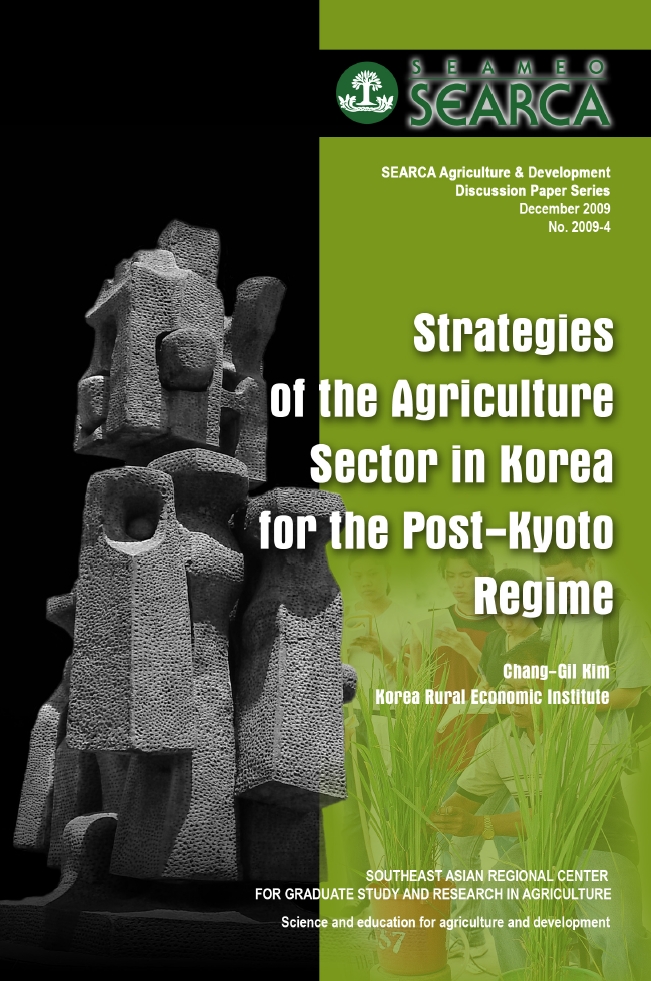Strategies of the Agriculture Sector in Korea for the Post-Kyoto Regime
The comprehensive consideration of internal and external changes in conditions pertaining to the post-2012 Kyoto Protocol scheme indicates that Korea is highly likely to be mandated to reduce greenhouse gas (GHG) emissions starting the second commitment period (2013-2017). The new emission cut mandate under the Kyoto Protocol could serve as a good opportunity for Korea, depending on how it reacts. This paper analyzes the impact of the Kyoto Protocol implementation on the agriculture sector and suggests strategies for the post-Kyoto regime. The analysis shows that the agriculture sector’s technologies for reducing GHG emission have the potential of cutting substantial amounts of emissions.
The core technologies are related to methane reduction through intermittent irrigation, reduction of nitrogen dioxide in nitrogen fertilization, use of soil organic carbon (SOC), cultivation of bioenergy crops, gastrointestinal fermentation in the livestock sector, and improvement of facilities for treating livestock manure. Systematic and step-by-step strategies for agriculture were also suggested in implementing the Kyoto Protocol.














